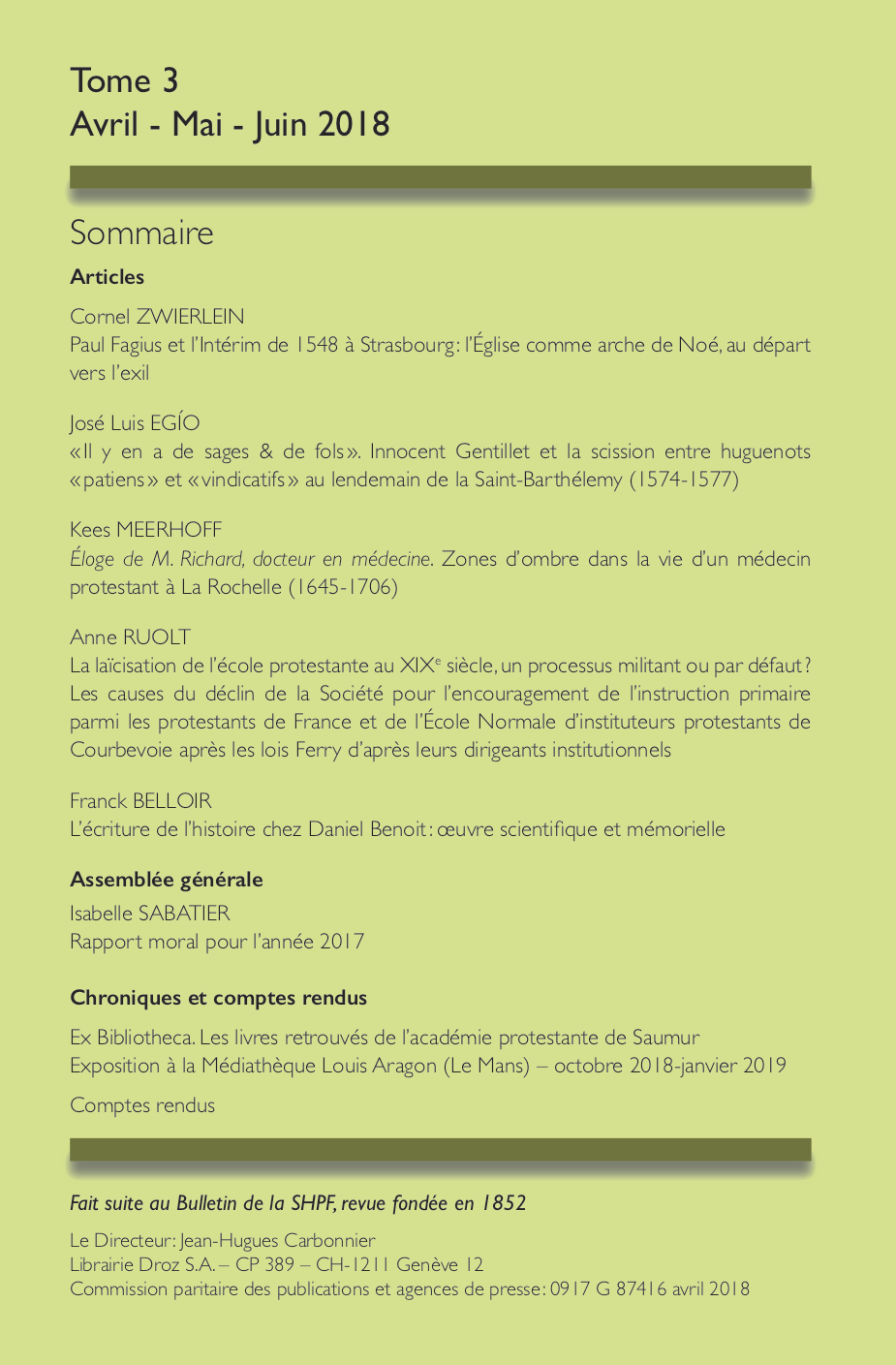Paul Fagius et l’Intérim de 1548 à Strasbourg :
l’Église comme arche de Noé, au départ vers l’exil
Abstract
The renowned Hebraist Paul Fagius, professor of Old Testament at Strasbourg and preacher at the church of Saint-Pierre-le-Jeune, taught at the faculty of theology until 1549, when he together with Martin Bucer was forced into exile in England. This article offers us, for the first time, an analysis of manuscript notebooks kept by students attending his lectures–one of which was thought to have been lost in the aftermath of World War II. The extant lecture notes allow us to understand how the exegesis of Genesis, Leviticus, and Numbers functioned as a prism for Strasbourg’s Protestants to help them come to terms with the tense situation they faced when their city was under pressure from Emperor Charles V to accept the Augsburg Interim of 1548, notwithstanding the fierce resistance offered by Fagius and Bucer. Thus, the formation of small “core churches”, that is, communities of the “truly elect” within the larger church, and the enforcement of discipline by its pastors preachers, found echoes in the story of Noah who built his ark under the threat of the flood, and in the story of God’s servants Moses and Aaron who preached and enforced discipline among the elect people of Israel. Here, one might argue, we find the origins of the Reformed Protestant exile discourse and identity from the second half of the sixteenth century.
